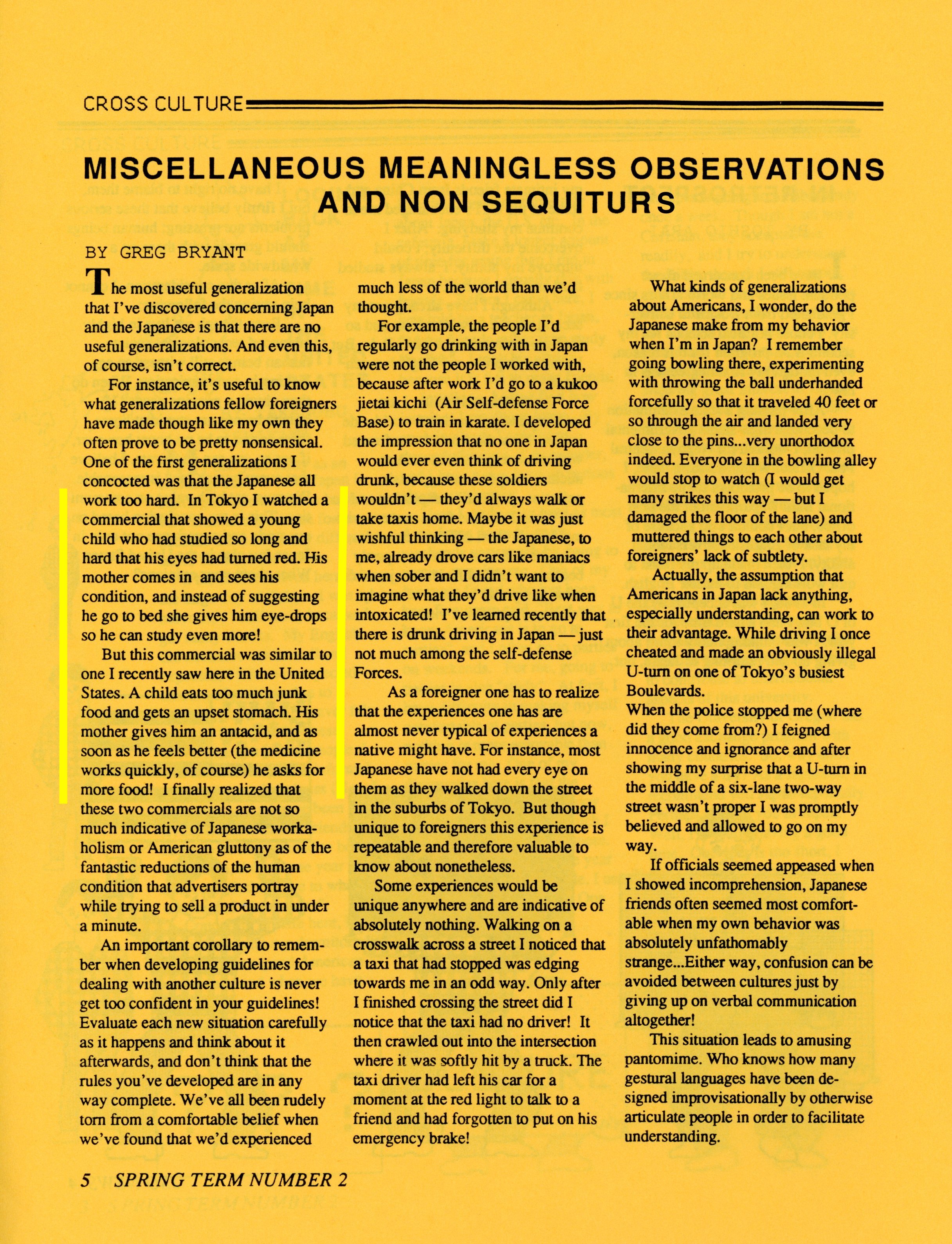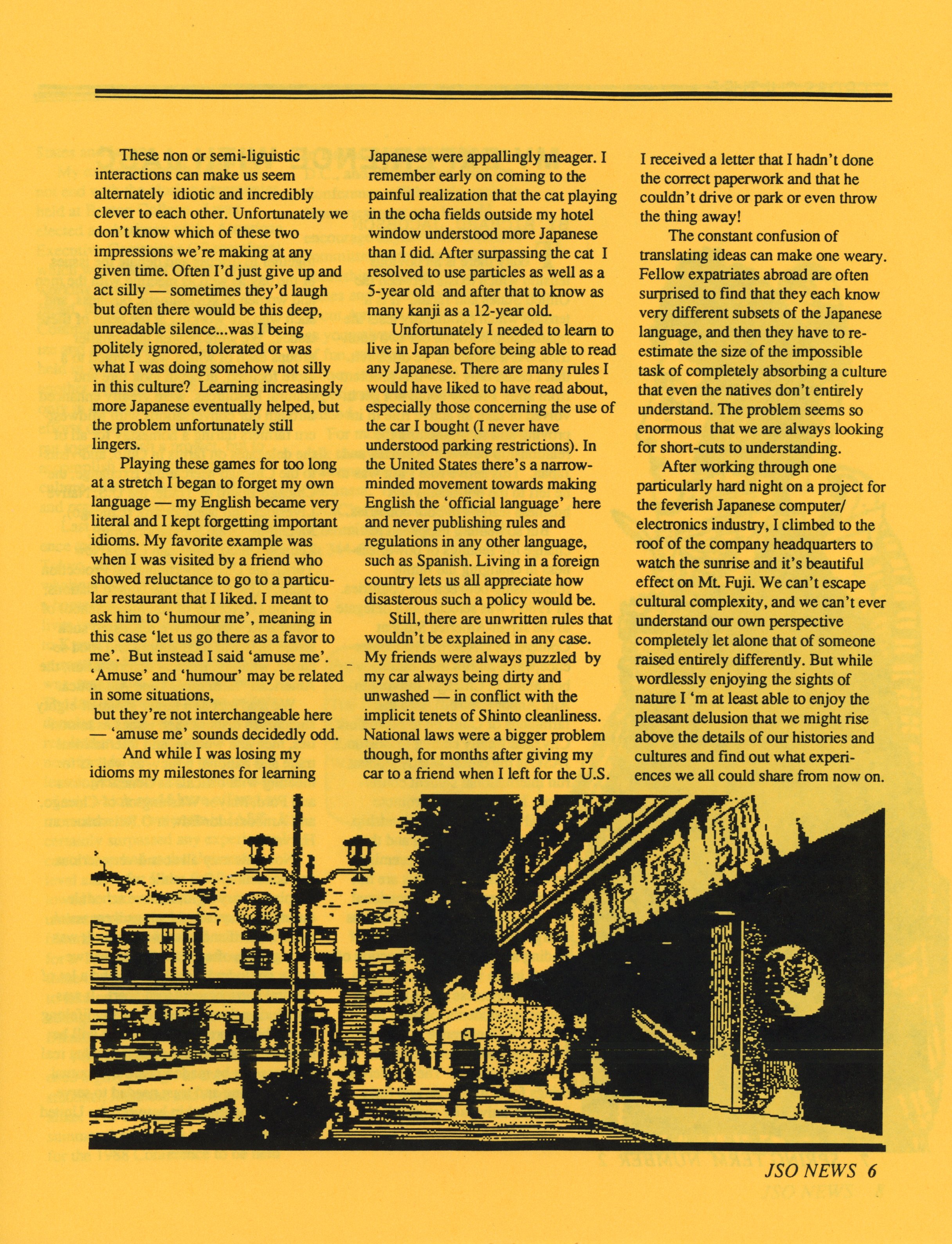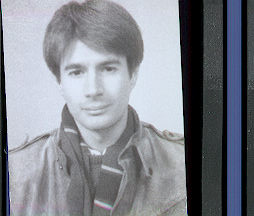
Japan 1985

1985. Showa 60. I arrived in Japan in the last year of Hirohito's reign as Emperor. That makes it seem like an era so long ago ... only someone else could have lived in it.
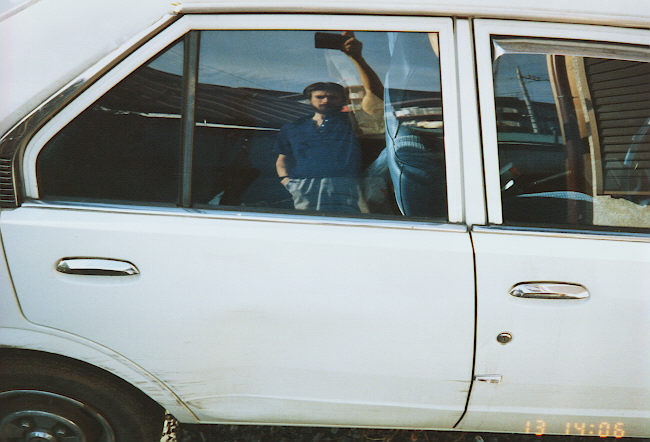
This is the car I bought there. A Nissan sentra. Used cars were essentially free in Japan. No one wanted used consumer goods. How unclean. So, you can find last season's stereos and dishwashers, thrown out with the trash. Used cars were usually junked, so I was lucky to find one. I paid less than the cost of the auto inspection for this one. I bought it from a man who saved used cars only to grow mushrooms in! I was surprised at how easy it is to drive in the right seat, with the stick shift in the left hand. I had resisted buying a car. (I usually took taxis: with their white-gloved drivers, and lovely automatically-opening doors.) But I couldn't find a bicylcle for sale in my neighborhood. Although, the thought passed through my mind more than once, I could just 'borrow' one, at the train station. Commuters leave them unlocked. But of course I didn't. I wasn't a thief. Although, I think I may have mistakenly taken someone else's umbrella, at a Japanese supermarket, once. They also leave those unlocked, in public stands, at the front door. And someone had taken mine. Accidentally, I'm certain.
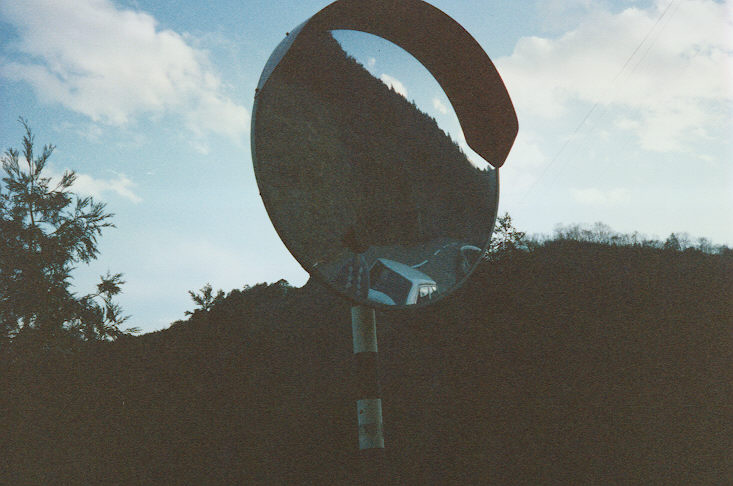
Driving in Japan, or while a pedestrian, you use these ... street mirrors ... to see around sharp corners. Very disorienting. I associate these, though, with a particular incident. I was driving through a neighborhood of houses when I found myself driving onto progressively smaller roads. Tiny as my car was, it eventually could not fit around the next corner, which had one of these mirrors on it, enticingly suggesting that I could drive on, but never return. So, I had to reverse out. But, of course, on cue, this was just as a platoon of small children were returning from school. They swarmed around the car. They stared at me through the window, shocked at my alien appearance and so wouldn't move on. Deadlock. So I got out, smiling benignly, waved at them, responded to the thousand little 'gaijin, gaijin' (foreigner) announcements, and waited, forever, until I could back out of this Daedalus-built neighboorhood.
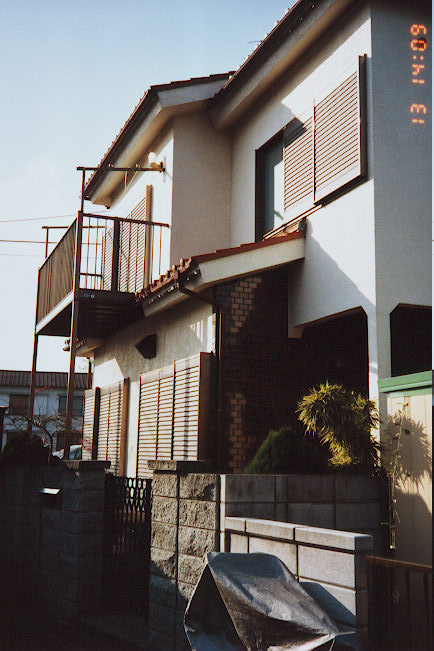
My house, which I rented for more than half a year. I'd stayed in the Nishisawa Hotel for many months before this, as a kind of hotel resident, but was sick of so many things: the breakfasts of egg and white toast with the crust removed; the tiny one-piece easy-to-wash plastic bathroom; the carpeted floor of my unfortunate "western-style" room.
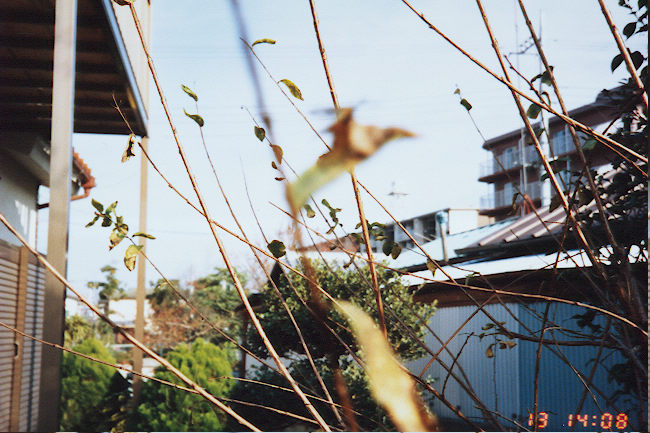
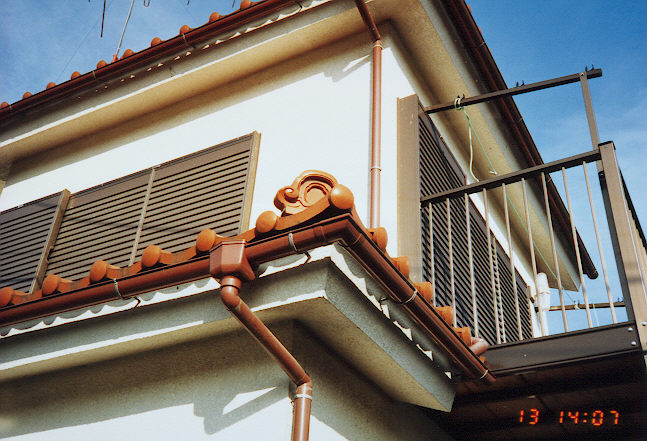
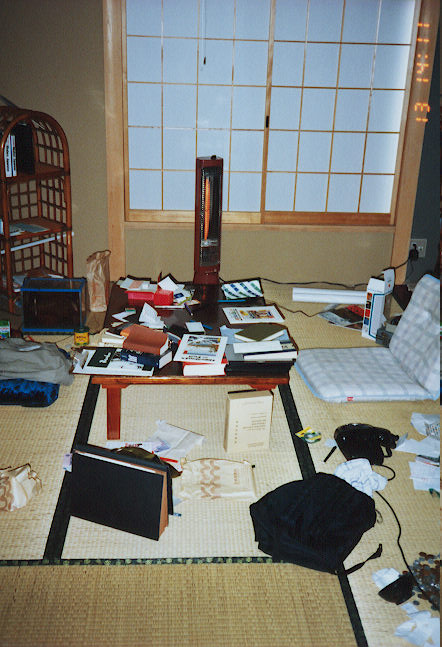
My home office, one of the five six-tatami-rooms in the house. It's dead of winter, and I'm surrounded by electric heaters. No centralized heating. No insulated walls. Still, it was better than the impossibly hot and humid tropical summer. And no matter the season, there were earthquakes at least once a month. And creaking in the house for a week after.
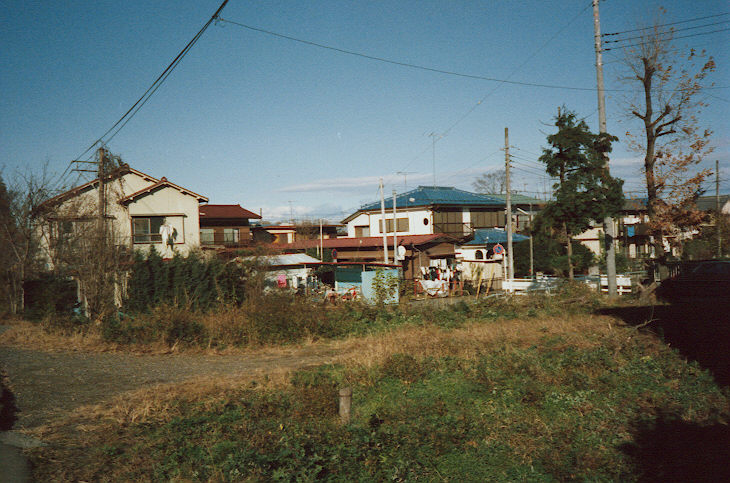
My house was on the edge of the neighborhood. A nice path and stream ran behind it. I'd hang my karate do-gi from a window to dry. Although I was in Japan to design computer languages and interpreters for use in a robotics CAD/CAM system, for Yaskawa Denki, I spent half my time training in karate, at an all Japanese military base. Most of my male friends in Japan were career soldiers who couldn't speak a word of english. Often they were involved in rescue work. Several were at my house, watching TV, when programming was interrupted, with news that a 747 crashed into some hills nearby. They took off like a shot, to clean up a gruesome mess.
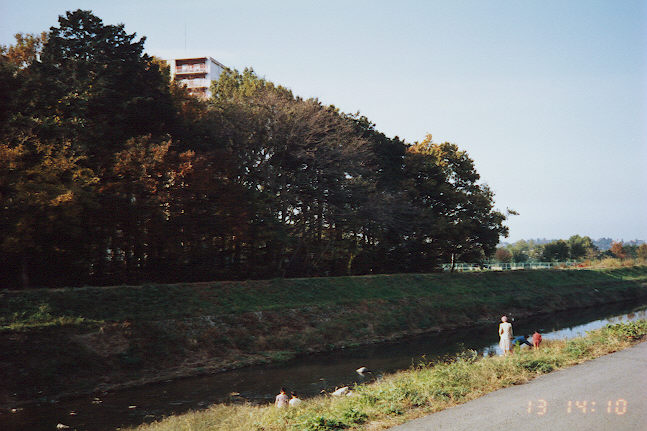
The stream behind my house.
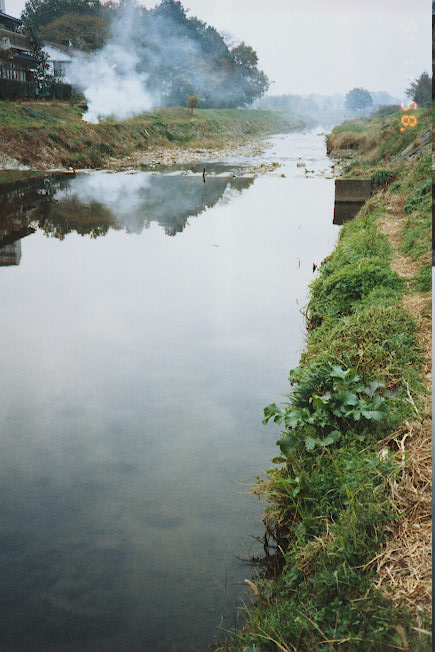
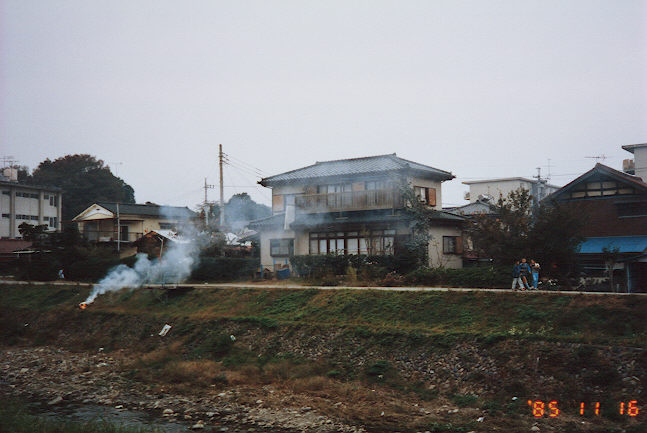
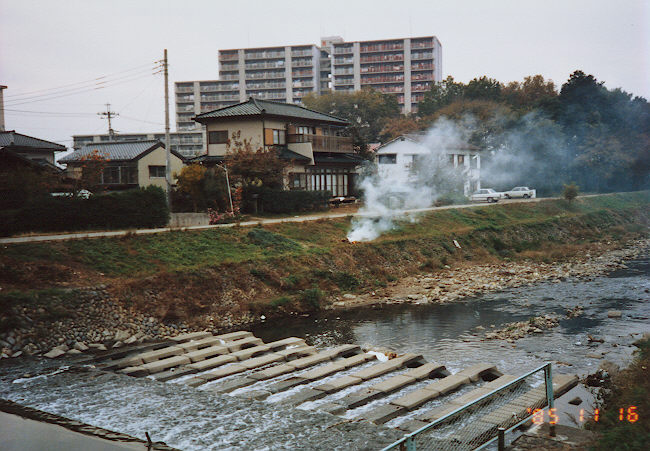
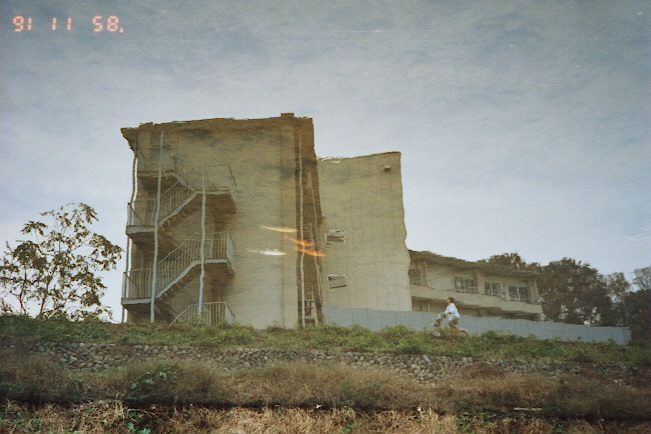
A reflection in the stream. Turned right way up.
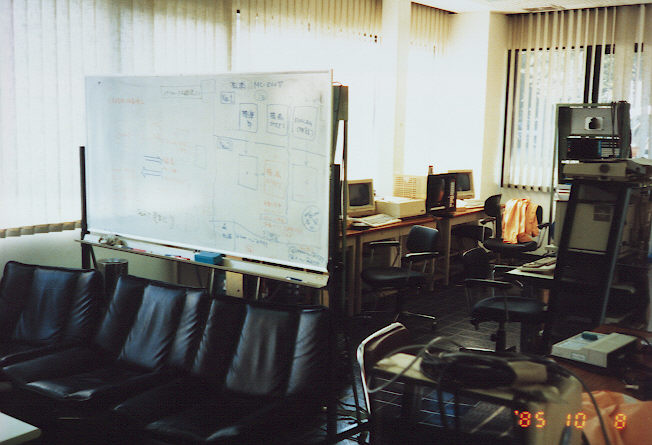
This was the first room I saw at Yaskawa Denki, Inc. I had just arrived, in the middle of the night. I was horribly jet lagged, but horribly determined not to let it bother me. Sheaves of printouts were thrust into my hand, and I studied the problem, both at my hotel and in this 'American mission room'. The consulting company I was contracting to, had already spent several million dollars of Yaskawa's money! This silicon valley contract house was originally called The System Group, but they changed to Perennial, Inc. -- well-describing their ability to extract money from clients forever. Only two Americans were left when I got there, out of a posse of 20 or so. I didn't know it yet, but there had been great acrimony, fraud, and even murder among the American group.
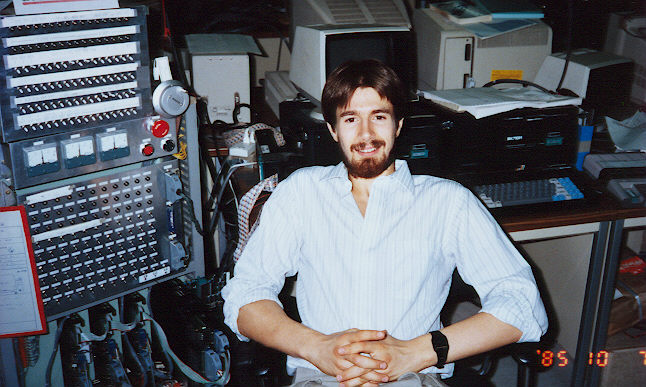
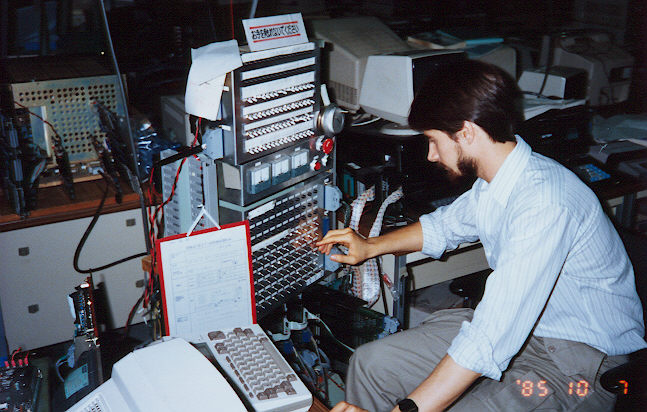
This is not my desk. These are 'fooling-around' photos. Where one makes believe one is fooling-around with inscrutable electro-mechanical contrivances.
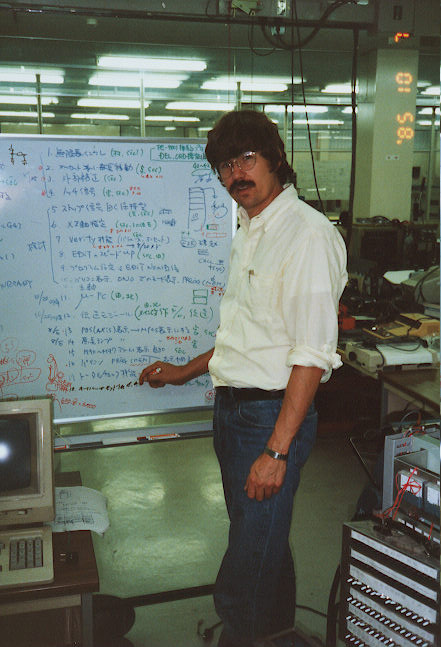
And here is Bruce Robertson, king of all japes and fooling-around photos, pretending he's just given a lecture in Japanese. As he would say, "we only wish we were that well-educated."
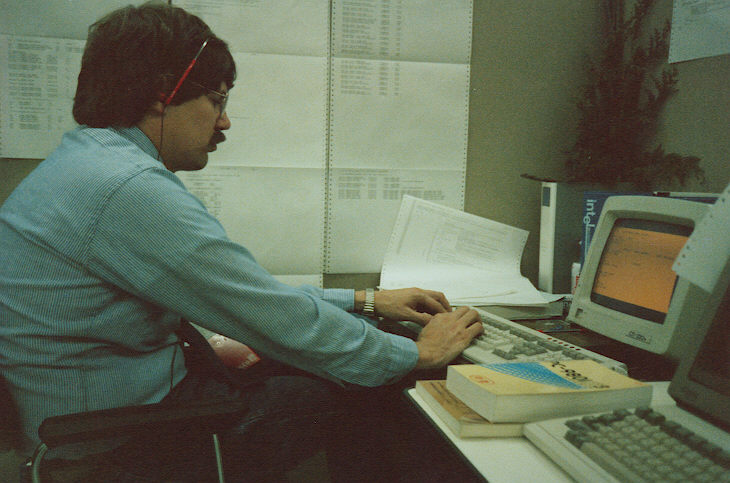
Bruce Robertson, deep in actual work.
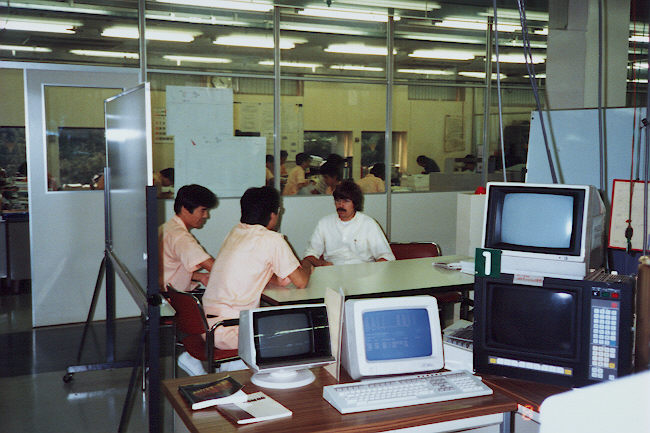
And this is what Bruce looks like while negotiating, for a higher hourly rate, when the client is completely desperate, and cannot possibly get the project done without him. The project was a CAD workstation tied to factory-floor robotics numerical control system, which ultimately sold extremely well in Japan: Yaskawa's ACGC product.
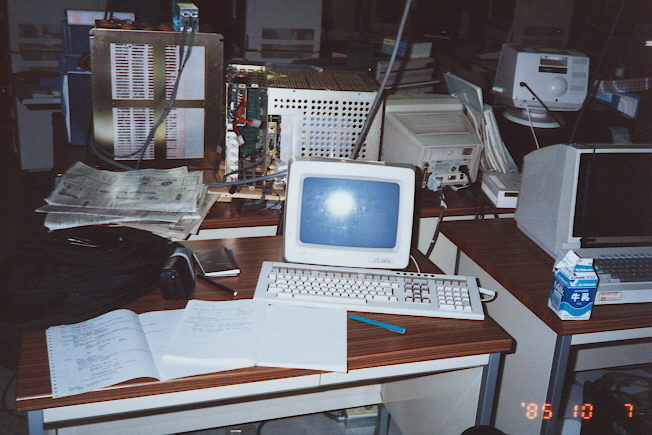
Ah, this is my desk. DEC VT 220 terminal. Notebook. Today's Asahi Shinbun and The Japan Times. Highly-structured lineprinter printouts, in a computer language of my own design. Neat back-pack and camera case. Karate techo or datebook. And food. The Japanese were always a bit miffed that I brought so much food into the office. But I was doing so much karate, over 20 hours a week, that I needed all the calories I could get. Whenever I could, I'd escape to the local supermarket and bring back bags of whole cashews, tins of exotic fruit, packaged crackers and brie, fresh tofu, inari-zushi and maki-zushi, milk, a kefir-like strawberry yogurt drink, orange juice ... anything that looked good.
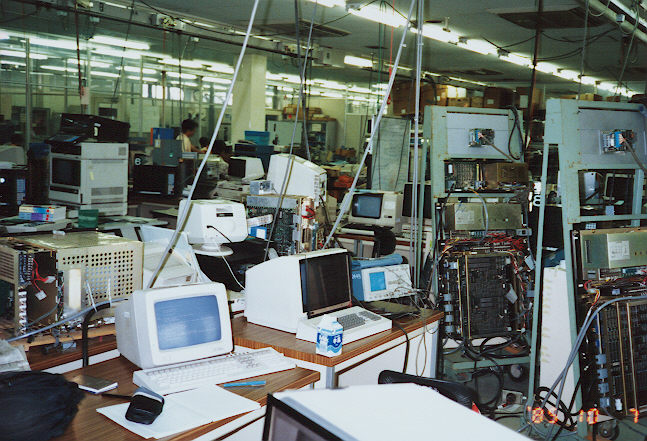
My desk, in its natural jungle habitat. We moved out of the 'american room', which I think was dimantled as an unlucky monument to the previous team. They apparently didn't know where to put us, so we took control, and picked this equipment area. Primarily because it was conversation-free. And because it was a no-smoking area, due to all the sensitive equipment around. I was somewhat tolerant of cigarette smoke, but not inside, while I'm working. I had recently quit Intel headquarters in Santa Clara, in part because smoking was allowed there. (Also because I didn't want to be part of their 'corporate culture'. Or any corporate culture, for that matter.) So I was happy to frolick amidst these well-ventilated machines. And there were windows behind me, which opened. Bliss.
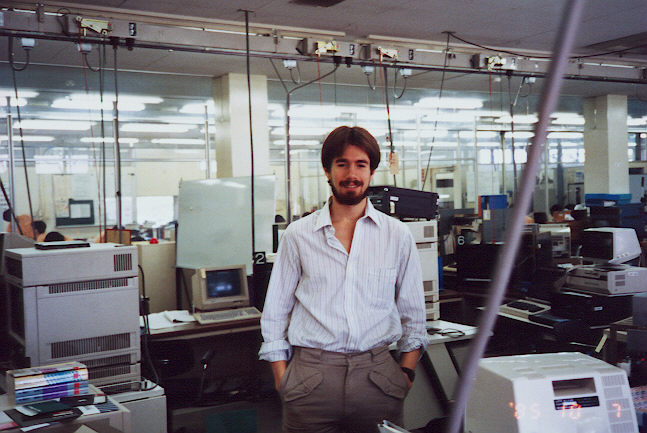
Me in my desk's environment..
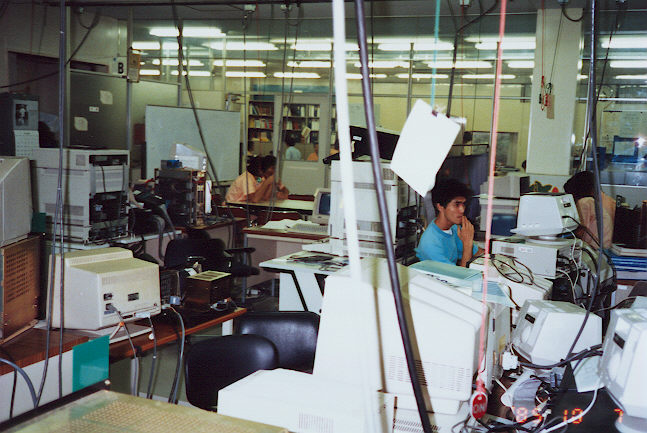
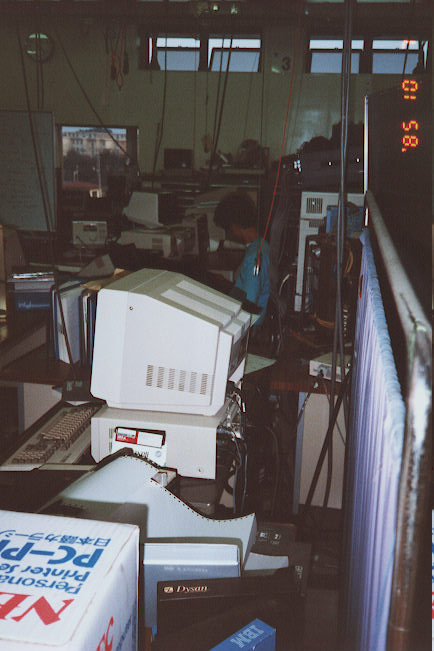
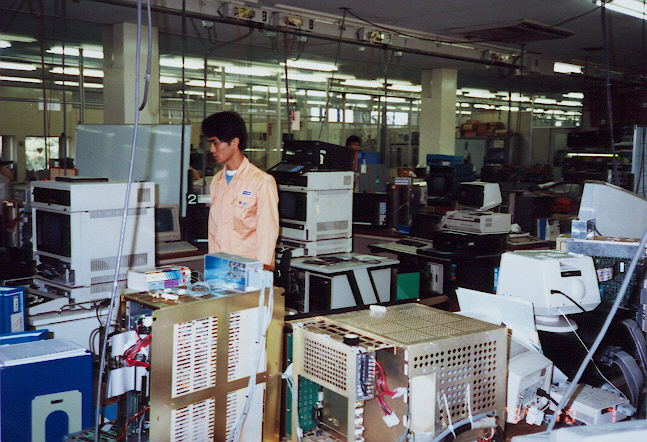
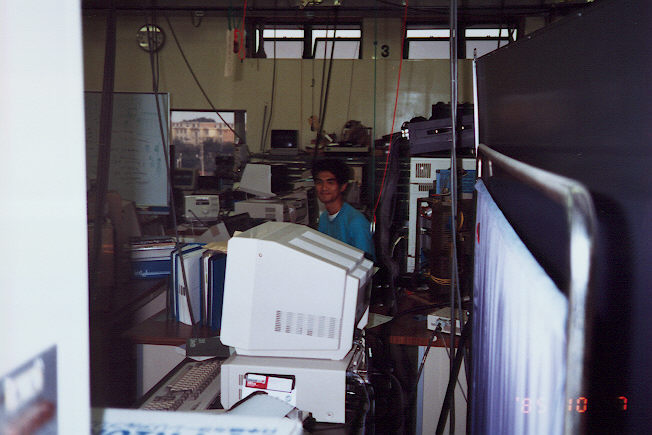
One of my fellow machine-room dwellers, a frighteningly thin but good-natured engineer.
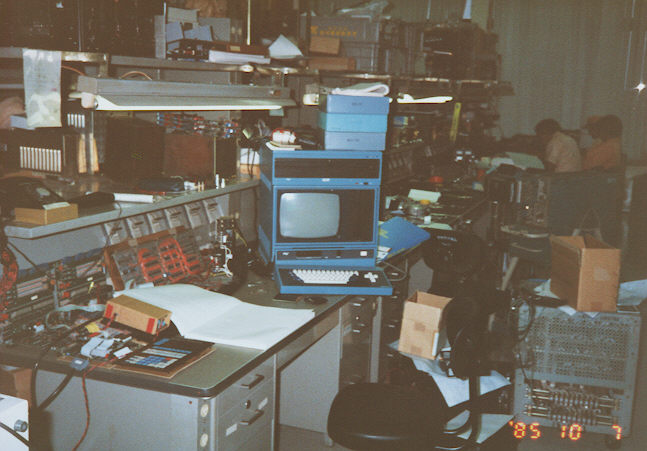
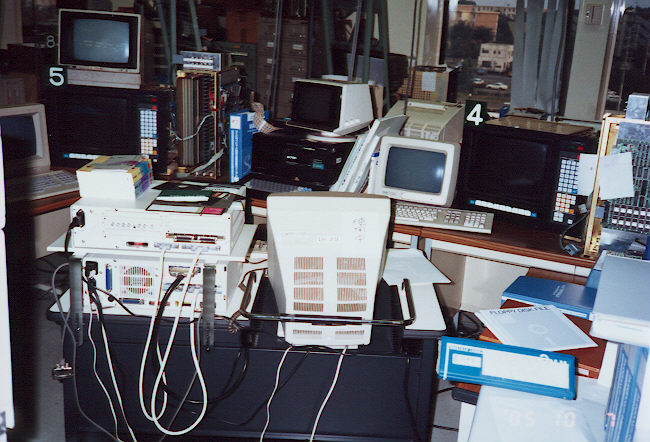
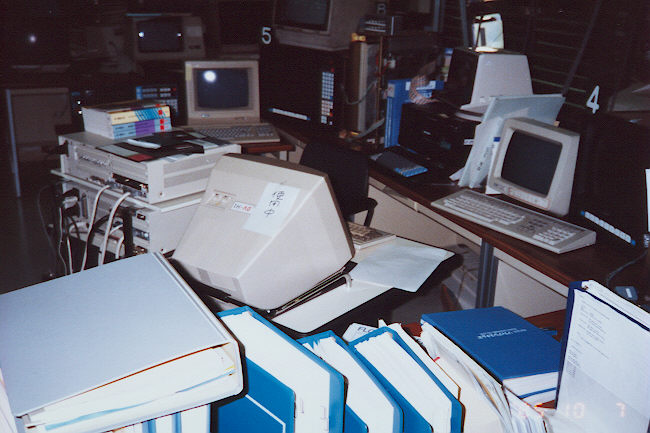
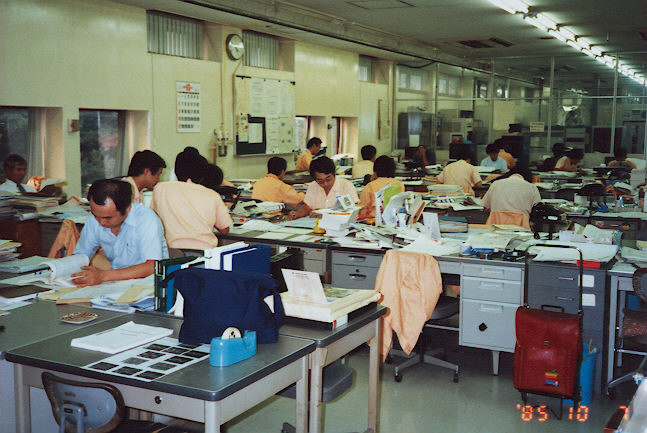
This is the smoking area. The section chief relaxes at the head of each cluster of worker-bee desks.
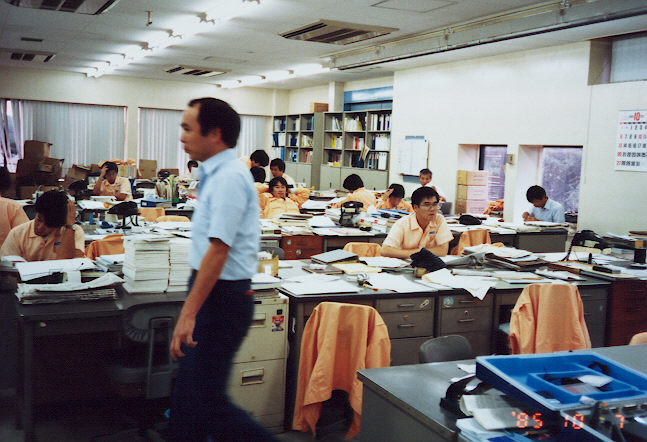
The man who's walking around, in a blue shirt, as opposed to the orange uniforms everyone else is wearing, is a kind of dissident. He's a brilliant electro-mechanical engineer, one of the most respected at the company. When the company changed the men's uniforms, from blue to orange, he refused to wear them. "Orange is for emergencies" he explained. Though he was still active, I believe the people near the windows were ... sidelined: on the verge of retirement.
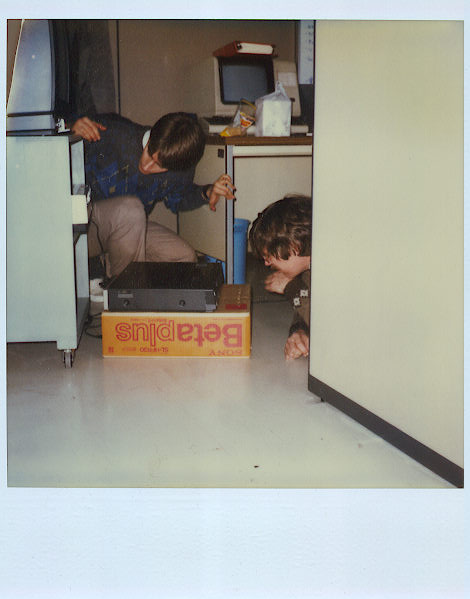
They eventually moved us to our own area, distant from anyone else, way on the far side of the VAX's isolated, air-conditioned machine room. [DEC's Vax computers were really hot in the early 1980's]. The VAX room was culturally interesting, because you changed into different slippers, once again, when you entered this room. I may not have mentioned that we were wearing slippers, all the time: leave your street shoes at the front door. In our own area, we were free to watch videos in the background because no one kept track of us. (Well, except for whoever took this poloroid photo.)
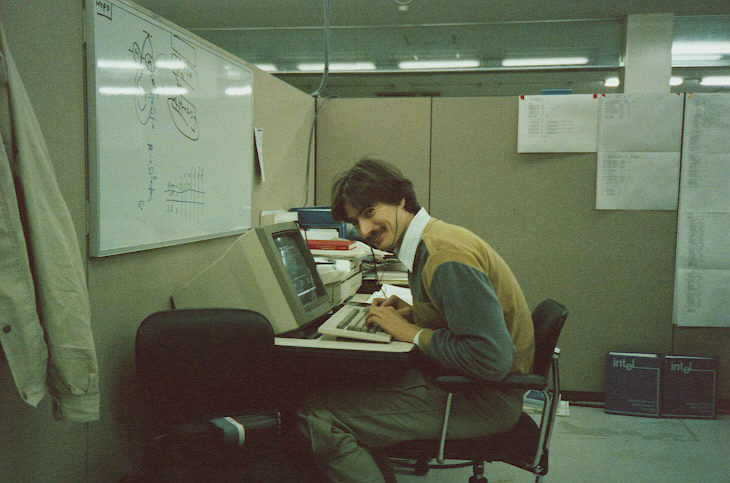
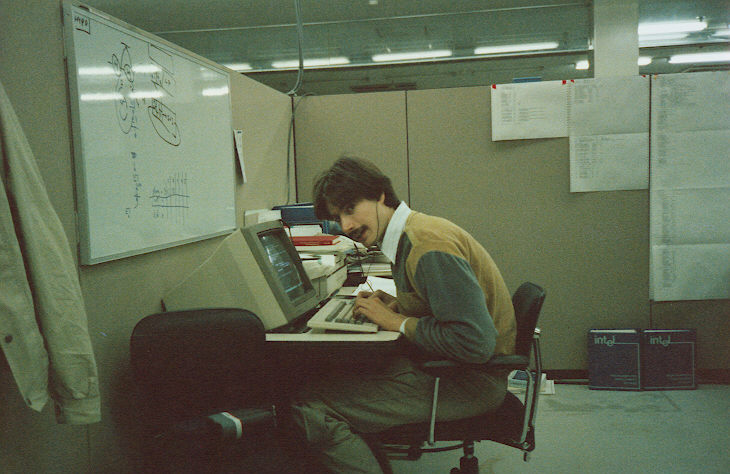
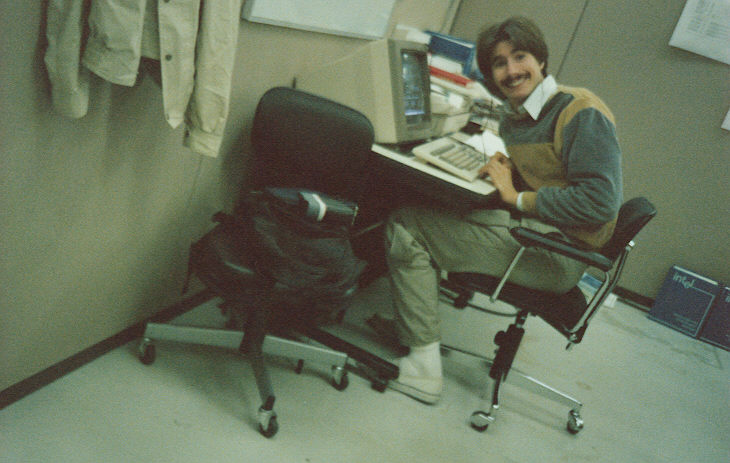
I was becoming so crazy, I even experimented with a mustache, for one day.
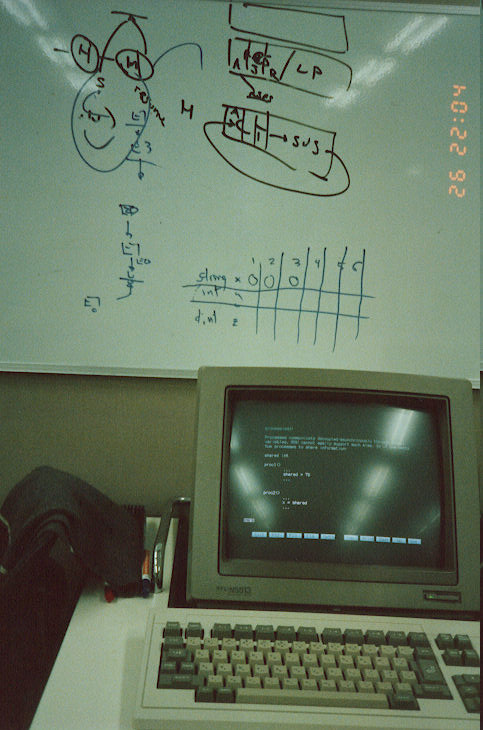
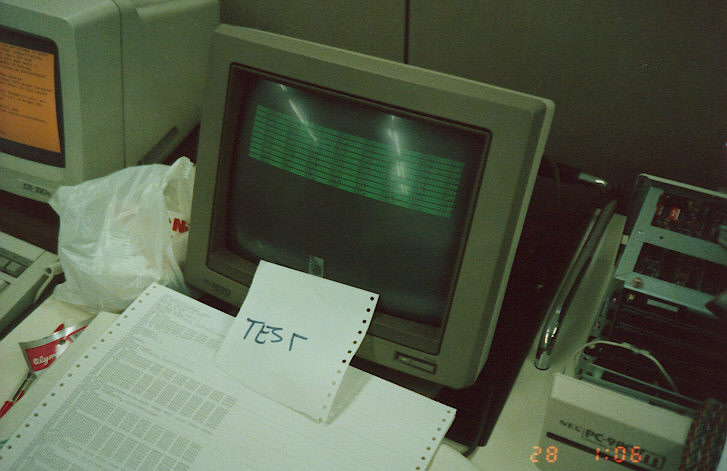
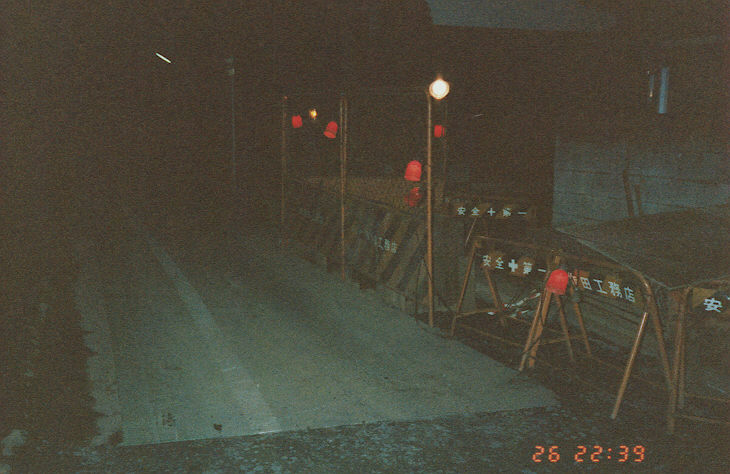
Bruce and I would work and work, wildly late. Often through dawn the next day. We'd climb to the roof, to watch Fujiyama change hues [I think I must be the only foreign visitor to Japan who didn't take a photo of Mt. Fuji]. At least once, we went for a drive, to a forested peak out of the valley, to meet the sunrise.
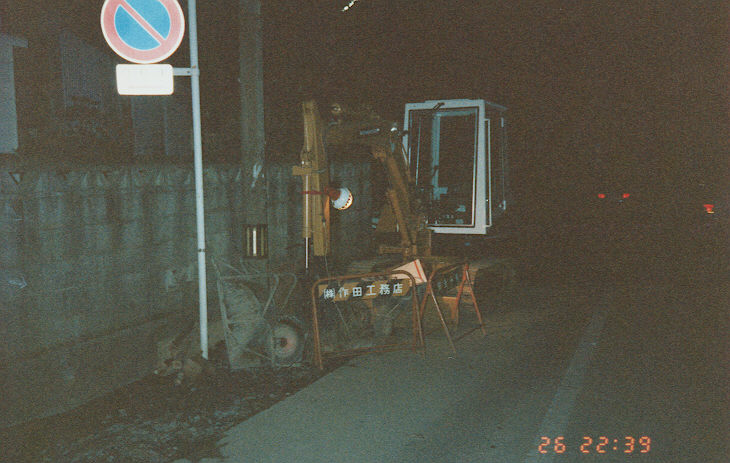
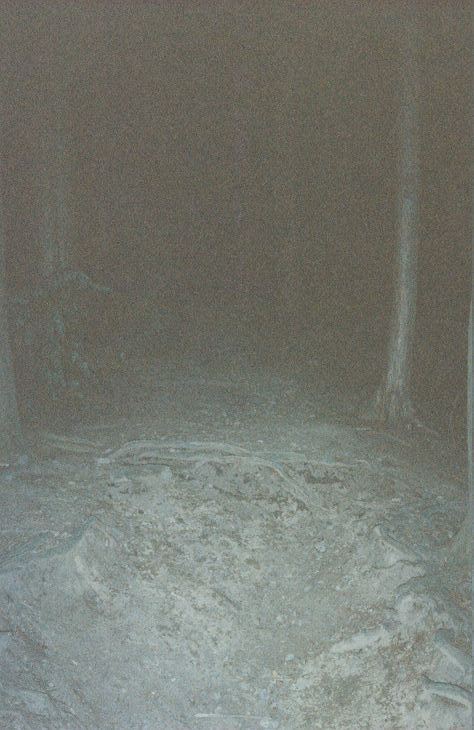

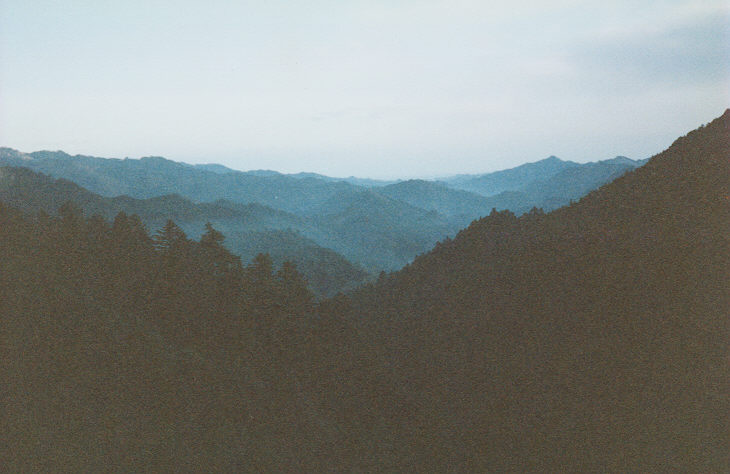

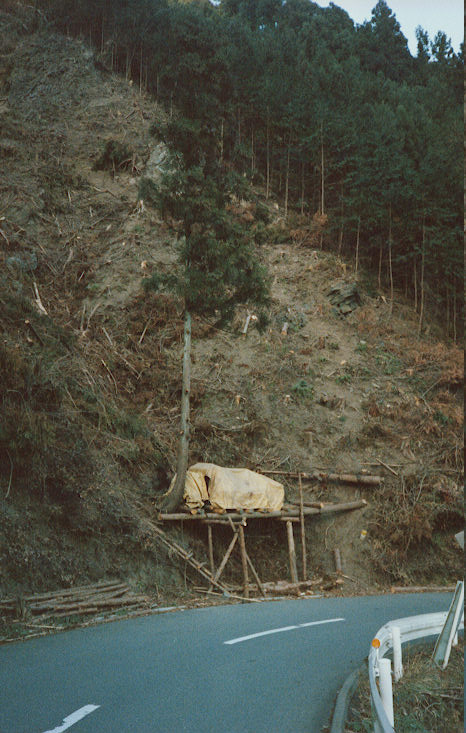
A Japanese clearcut. Back to Yaskawa.
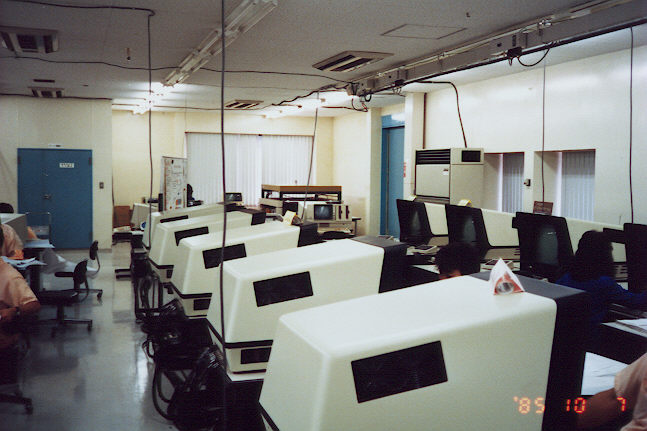
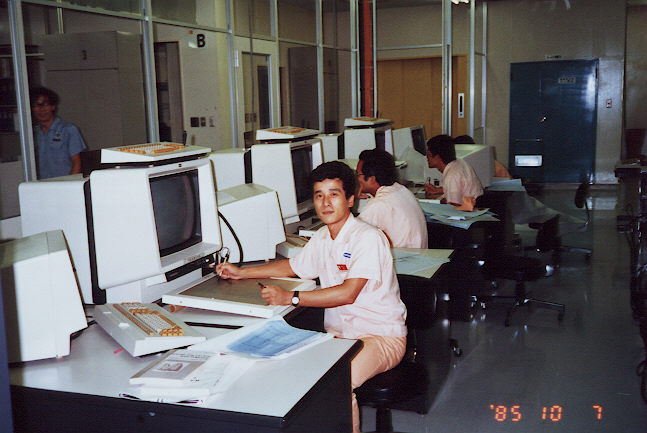
The CAD room. Nobody had these monsters at their desks.
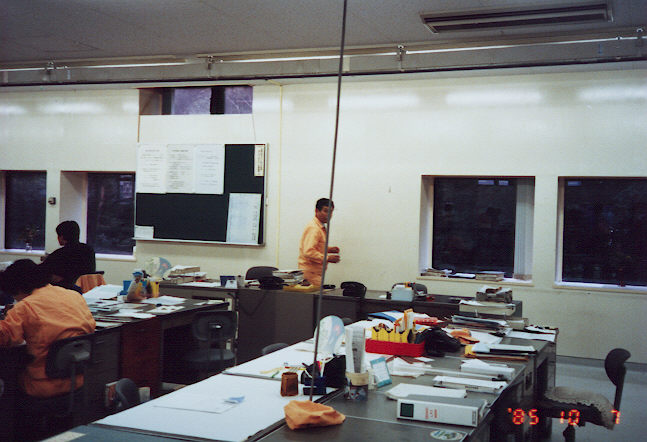
A different floor than ours. This fellow has detected my anomalous presence...
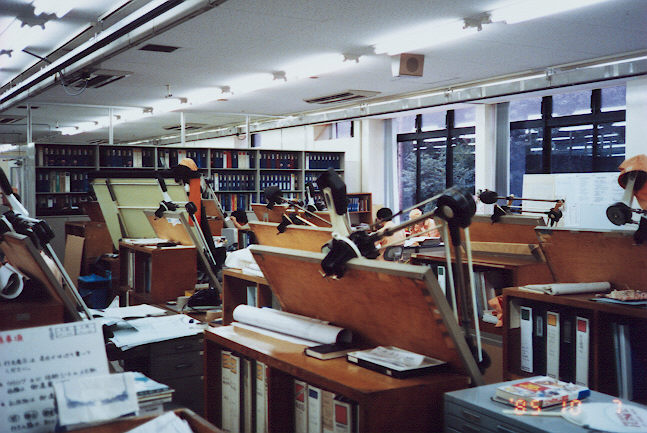
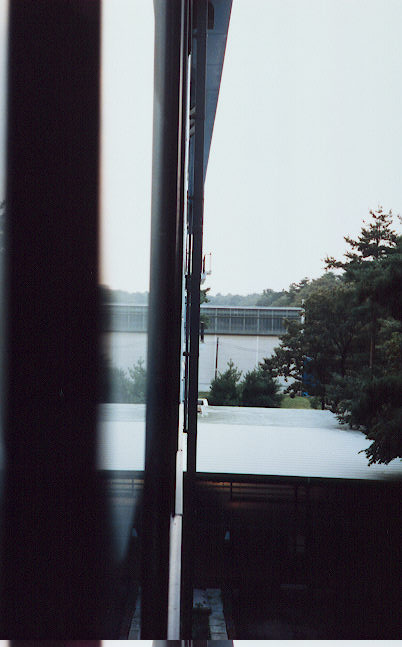
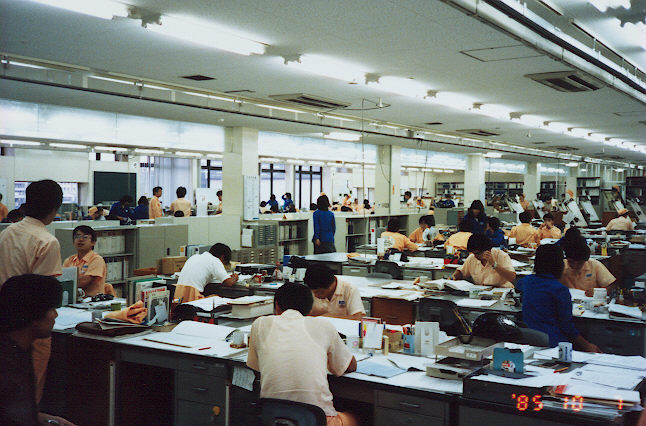
The girls are in deep blue. Which brings me to my favorite problem in Japan: the undervalued women. There were some obviously smart women here, but they were essentially expected to bring tea, and do anything else the men didn't want to be bothered with. They were overwhelmed by my courtesy towards them.
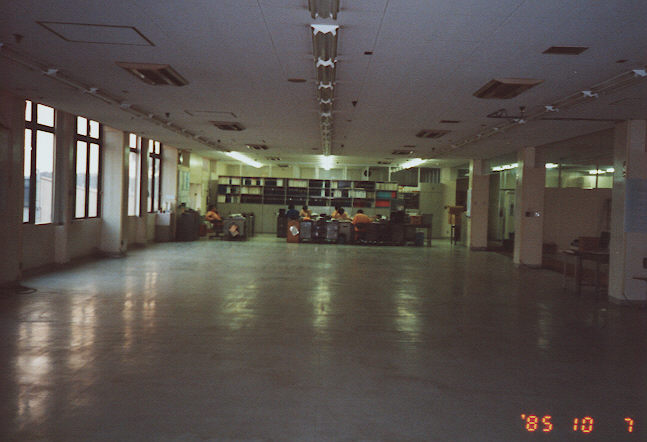
We overheard that one of the floors had been evacuated! Tickled that we had actually understood this gossip without the aid of translation, Bruce and I raced downstairs to gawk at the changed scenery.
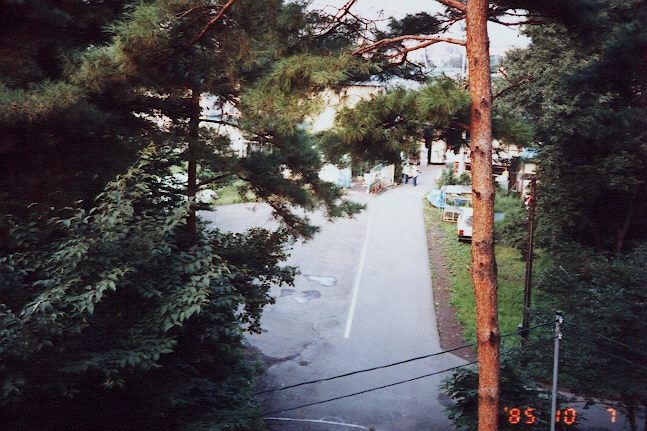
On the outskirts of the yaskawa compound. Bruce and I would walk at length, here among the shippers and workers, and talk for endless stretches, just so we didn't forget too much of our English. I remember that here, we coined a term, that still makes us laugh. The "ne", in the japanese yes-like phrase "So desu, ne?" is rather like the canadian/scottish "eh?" and the french "n'est-ce pas". So we'd say "so desu, eh?" and "So d'n'est-ce pas" ... hmmm. Kind of juvenile when written down ...
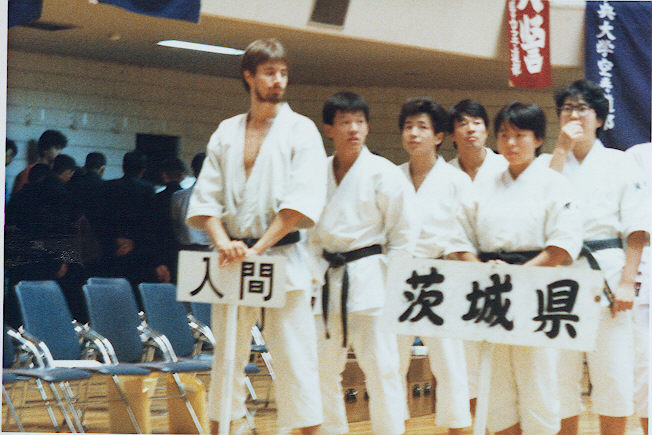
I was in the JKA Japanese National tournament in 1985 (Nihon Karate Kyokai Zenkoku Taikai), in Tokyo's Budokan (yes, I 'performed' in the Budokan, like the Beatles, and like just about every Tokyo school kid in a calligraphy contest). I did team sparring, managing to tie my opponent. Later in the year, I finally adapted to the speed of my comrades, and I started to win tournaments in Japan.
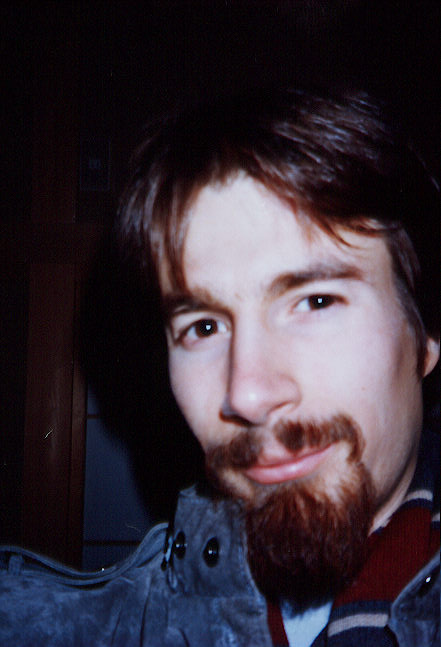
An experimental goatee, 10 years before they became fashionable. Never again.
The next year, back in Eugene, some new Japanese friends wanted me to write an article about my year abroad. I include it for completeness.
